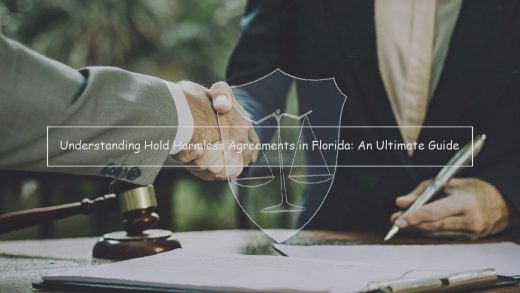
Understanding Licensing Criteria
To obtain a Georgia Residential Basic Contractor License, applicants must be at least 21 years of age and provide a copy of a government-issued identification card. Higher education or on-the-job training directly related to residential basic contracting is also required . At least 24 months prior experience as a subordinate part of a residential basic contracting company is necessary. Experience can include, but is not limited to: Project management, procurement, design, scheduling, pricing, estimating, contract preparation, contract negotiation and supervision can all be counted towards the minimum experience requirement.
The Application Process
Once you’ve decided on a designation, the first step in the licensure process is to sign up through Pearson VUE. This is the only research and testing service that is approved to provide Licensure Examination services for Georgia. After you’ve completed your initial registration, you will be given instructions to create an examination record. Once you’ve set up your record with Pearson VUE, you’ll be able to make the arrangements necessary to test your knowledge, skills, and general aptitude for the trade of general contractor. Applicants have 90 days from the date of initial registration to submit an application and schedule an examination. Once your application has been received and approved, an eligibility notice will be sent to you via e-mail with instructions on how to register for the examination. The availability for scheduling the test is occasionally difficult due to high demand. Applicants are encouraged to schedule their test well in advance of the expiration date to reduce the possibility of scheduling conflicts. While a passing score is good for up to one year, the importance of submitting the initial application as soon as possible cannot be overstated.
Getting Ready for the Exam
Once you are determined qualified as to experience and are then issued an examination application from the Georgia Board of Residential and General Contractors, you need to prepare to take the Georgia Residential Basic Contractor exam. About a month or so after receiving this application you will be eligible to register online for a test location and time as well as receive information on testing areas. If you do not seek help in preparing for the test, then it is going to be difficult for you to succeed in passing the examination the first time you take it. The exam prep courses include what actual questions on the test will be like and also cover some of the books that the test will refer.
The Residential Basic Contractor exam is made up of three sections: Georgia General Laws and Business Management, Contract Administration and Project Management. The exam is administered by Prov at Pearson Vue, and is offered in Atlanta, Macon and Columbus. The general laws and business management section of the test will evaluate whether you know how to successfully own and operate a Georgia construction business. The contract administration section of the test requires you to have a solid understanding of Georgia construction laws and how they impact contract management and compliance. The project management section assesses whether you know project management skills for construction projects.
Submitting and Monitoring Application Status
Upon completion of all application requirements, applicants will submit a completed credit card payment form along with the signed application to the Application Processing Section (APS) at the Georgia Secretary of State (SoS). After reviewing the application for accuracy, the SoS will send an authorization to Pearson Vue to issue the examination Authorization to Register (ATR) and will email instructions to applicants on how to schedule an appointment to take the licensing exam. Pearson Vue will enter all applicants into its scheduling system when it receives the ATR. If the application did not include the application fee or if any additional documentation is required , the application will be placed on a need documentation hold. If the application is placed on a need documentation hold, It is important that applicants pay the application fee and address any deficiencies noted as soon as possible by referring to the letter they received from the SoS. Failure to complete any open requirements in a timely manner will result in the application being voided, and a new application and payment will be required. Check License Status? Applicants can use the Online Services Tool to check the status of their application: Applicants are considered to be Active (final approval has been received), Hold (additional information is required), or Denied.
Licensing Fees and Renewal Insights
Fees for the Georgia Residential Basic Contractor are somewhat modest. Your application fee is $30, and the cost of the initial License Fee is $150, which must be paid within 90 days of your license becoming effective or you may lose your license. Renewal fees for a Georgia Residential Basic Contractor License are $150 every even-numbered year by September 30th, but you may avoid a $100 late fee if you renew by – September 30th "during odd-numbered years." It is not clear what happens if you don’t renew your license, or if you do not pay the late fee. It is probably best to contact the Georgia Secretary of State’s office if you think you may have missed a renewal deadline. A licensee "shall maintain a current, verifiable street address" and "shall notify the Division of the Georgia Secretary of State within thirty days of any change of address."
How to Stay Certified and Informed
As with any professional credential, it is important to stay current and in compliance with all requirements once you have obtained your Georgia Residential Basic Contractor License. The Residential Code and Board Rules can be updated and amended regularly, and the onus is on the State licensed contractor to keep their certifications current. The Board has the ability to levy fines, impose restrictions, or even suspend or revoke your license if you are not in compliance with the Code or the Board’s Rules.
Some provision of the Licensing requirements include the following:
(b) Continuing education requirements are necessary for renewal of licensure.
- (1) Each licensee needs to complete 16 hours of professional development during the 24 months preceding the expiration of the license. During licensure renewal periods from January 1 , 2015 through December 31, 2015, any licensee currently holding a Georgia residential contractor general contractor license who renews his or her license must complete 3 hours of lateral code update training. Lateral code update training may count toward the 16 hour professional development requirement. Failure to complete these requirements shall result in the forfeiture of the right to renew the license and shall require retesting.
- (2) Professional development courses shall be offered by Board approved education programs and delivered in classroom or online at a location acceptable to the Board. Home study courses are not acceptable.
- (3) Language other than English, whether spoken by the attendee or the instructor, shall be preapproved by the Board for attendance to fulfill the professional development requirements.



